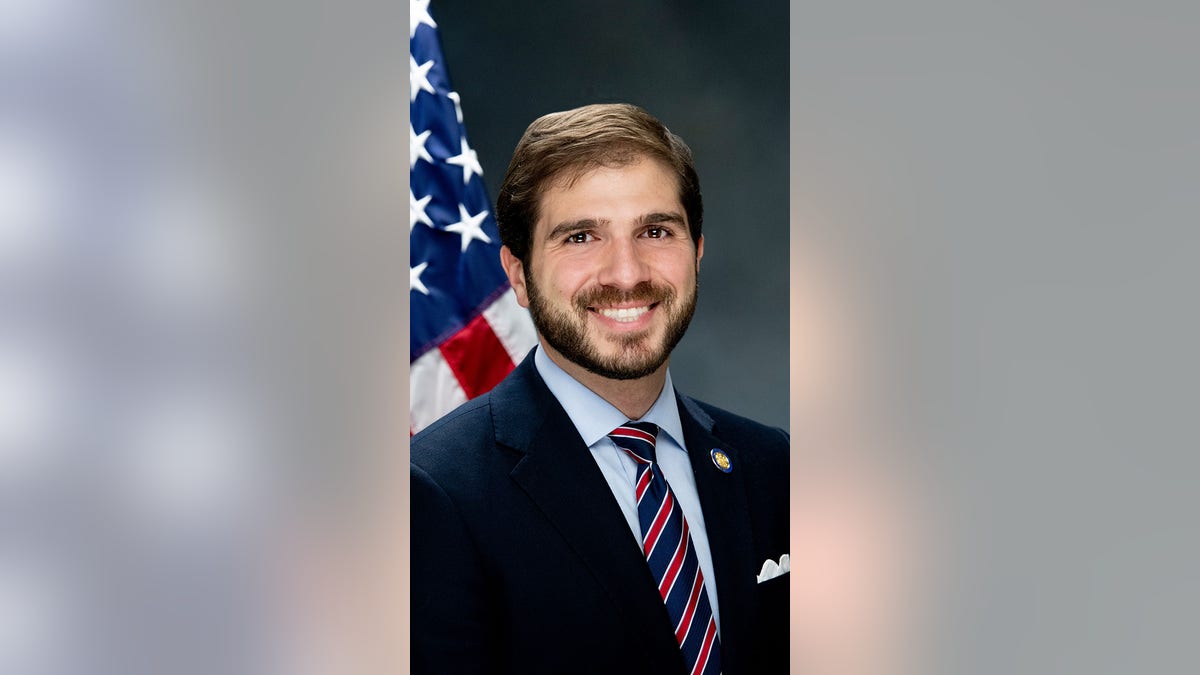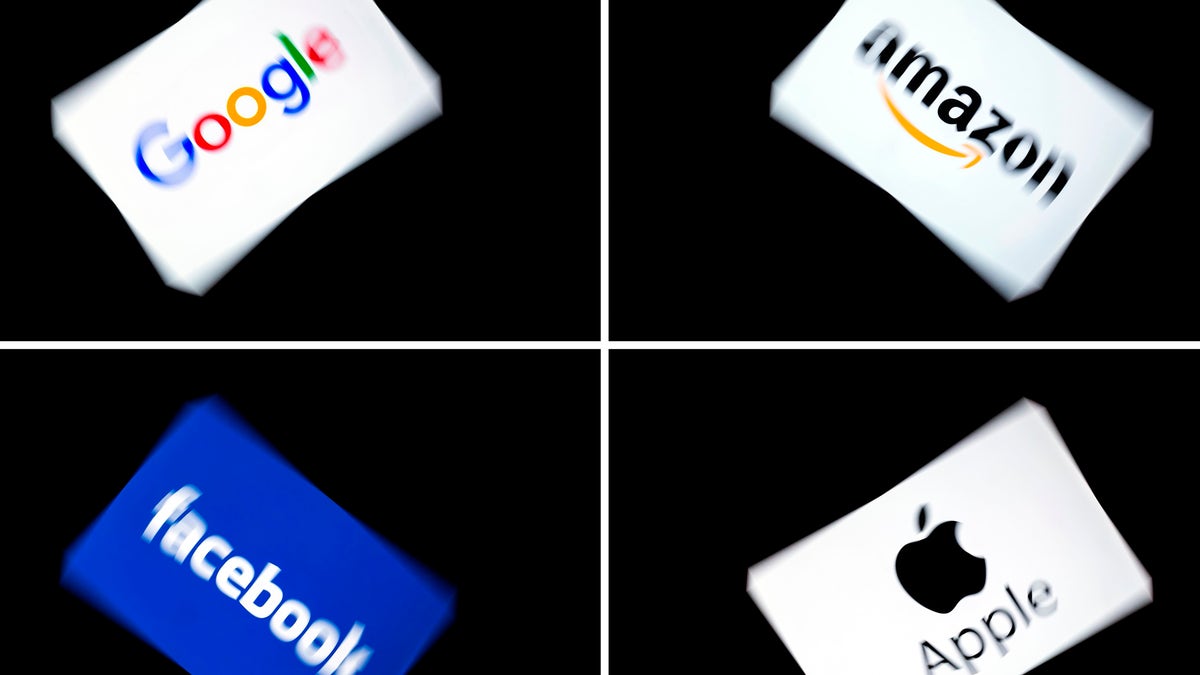Media top headlines May 10
NBC's Chuck Todd failing to ask Dr. Fauci about the origins of COVID and more round out today's top media headlines.
EXCLUSIVE – An Empire State lawmaker is fighting back against Big Tech.
New York State Senator Andrew Gounardes (D) plans to introduce a bill this week that will be the first comprehensive sales tax on the commercialization of data in U.S. history in an effort to compensate people who are unknowingly helping tech companies profit by selling personal information.
"We create billions and billions of dollars in value for these companies that are making money off of us that we do not see any return off of," Gounardes told Fox News. "So we’re trying to change that conversation. I would love New York to lead the charge on this."
EX-GOOGLE CONSULTANT SOUNDS ALARM ON NEGATIVE IMPACT OF BIG TECH IN ‘THE SOCIAL DILEMMA’
Tech giants such as Amazon, Apple, Facebook, and Google regularly capitalize on the unpaid labor of billions of internet users every day as they unknowingly create one of the world's most lucrative assets with their everyday internet usage -- data. But Gounardes, who feels that Americans are unknowingly providing tech giants with valuable information during the course of our day-to-day lives through online interactions, hopes the Data Economy Labor Compensation and Accountability Act could help benefit New Yorkers whose data is being commercialized.

New York State Senator Andrew Gounardes, D., plans to introduce a bill this week that be the first comprehensive sales tax on data in U.S. history.
"I like Bruce Springsteen and Pepperoni Pizza. And I wear Levi's jeans, and I put that somewhere. I write that somewhere, money is being made off of those characteristics," Gounardes said. "People are making money off of me, off of you, off of all of us simply because of who we are and our personal characteristics that are unique to us, or our personal preferences, things that we say, things that we write, things that we click ‘like’ on and we create this enormous value for these companies."
The Data Economy Labor Compensation and Accountability Act would aim to redistribute the value of New Yorkers' data by imposing a tax on tech companies who derive economic benefit from the sale of data accountable. The tax would then be used to invest in digital literacy and workforce redevelopment across the Empire State.
"We want to take a communal approach to compensate us for the data that we are creating and the work that we are doing for these companies and then put that compensation towards greater use for all of us in the form of workforce development, digital literacy, education, etc.," Gounardes said.
To hammer out the proposal’s details, Gounardes teamed up with Brooklyn Borough President Eric Adams and former Google consultant Joe Toscano, who is a key figure in the wildly popular Netflix documentary "The Social Dilemma," which details the negative impact Big Tech can have on people.
"I watched the documentary and it was eye opening to me," Gounardes said, noting he had been working on the proposal prior to learning about the film and was eager to work with Toscano when he saw him mention data tax in the documentary. Gounardes then reached out to Toscano and the two decided to team up with the Brooklyn Law Innovation Policy Clinic, a group of students from Brooklyn Law Schools and the Fiscal Policy Institute to come up with potential solutions.

Former Google consultant Joe Toscano is a key figure in the wildly popular Netflix documentary "The Social Dilemma," that details the negative impact Big Tech can have on people.
"We had a similar understanding of what the problem is and what a potential solution could be," Gounardes said. "We had legal experts, financial experts and tech experts all working on this together, allowing us to really think about this project from a bunch of different angles and put out a product that we're very happy with."
The proposal would impact all entities that determine the purposes and means of processing personal data, along with entities that process data on behalf of the data controller no matter where they are located. The companies would then be taxed the equivalent of two percent of a gross receipts generated from the commercialization of data, multiplied by the percentage of data subjects residing in New York State. Additionally, the tax would be imposed on any company commercializing a New York State residents' data, regardless of state or nation lines.
EX-GOOGLE STAFFER WARNS SOCIAL MEDIA, APPS ARE 'BIG TOBACCO FOR OUR BRAINS'
"We're really basing it on the number of people in the state of New York that are creating this data for these companies, regardless of where they are," Gounardes said.
The law is written so that companies have no "escape route" by mirroring other modern laws that operate based on cloud operations, as opposed to nation-state jurisdiction. This means these companies, which have traditionally avoided paying taxes by moving their physical operations to tax havens in foreign countries can no longer skirt their responsibilities. Gounardes expects some within the tech industry to oppose the proposal, but insists the average New Yorker would have no reason to oppose it.
"We're not trying to destroy the industry. All we're saying is you have a responsibility to properly compensate us for the use of the data that we are giving you, that you're mining off of us, that we have seen no return on," Gounardes said. "In some ways the ketchup is out of the bottle, and we’re not trying to put it all back yet, but we do think there should be fair, appropriate and equitable way to manage this data, use this data and compensate us for it fairly and properly."
A June 2020 statewide survey from Data for Progress found that 79 percent of New Yorkers support a tax on digital advertising, including majorities of Democrats, Republicans, and Independents.
"It’s bipartisan," Gounardes said.

Tech giants such as Amazon, Apple, Facebook, and Google regularly capitalize on the unpaid internet users to help push their products and services by collecting and selling personal data. (LIONEL BONAVENTURE/AFP/Getty Images) (Getty Images)
Gounardes plans to introduce the bill this week, and while he doesn’t expect swift action, he hopes it will put the new data economy front and center when New York lawmakers negotiate the next state budget.
"I don't think there'll be immediate movement on it right now. But we do want to start having a conversation and we think that it's going to be a very long and public conversation," Gounardes said.
"In a state like New York, which has a GDP of $2.3 trillion, we're talking about hundreds of billions of dollars in revenue that's being created here. So I think it's important that people understand the numbers behind that, that New Yorkers understand that they are creating this value for these companies and that they have seen no return on their own, on their own labor, on their own data," he said. "That's why we want to have this conversation right now."
Toscano said New Yorkers would greatly benefit from the proceeds of the proposed tax going to digital literacy and workforce redevelopment because the same companies that are selling data are also eliminating jobs for people who aren’t as tech savvy.
"I think there's just a huge amount of frustration of being left behind. You know, there's no support. And what's happening is these companies are leveraging all of the labor that we're doing to create this data for them. They're creating software products that are trillions of dollars and they're taking all the money and then automating all these jobs," Toscano said. "They're extracting the jobs. They're taking away American jobs and doing it by having us do the work for them to take our own jobs away."
Toscano said the revenue from the tax would help put much-needed funds back into the ecosystem that would support the education of both children and adults who need competent tech skills to service in the modern workforce.
"We need to support our hard working Americans and this is a beginning to it, in my opinion," Toscano said.
The act would also create the Office of Consumer Data Protection (OCDP), which would be tasked with establishing and promoting rules and regulations around properly safeguarding personal data. The OCDP is where data controllers/processors would have to annually register with and report to. Gounardes, who hopes New York can lead the way for changes across the nation, said other states have taken similar steps but they don’t compare to his plan.
"Maryland passed the tax on digital advertising. Our bill is much broader than that. Digital advertising is only a small subset of the universe we're talking about here. Vermont had legislation to kind of register third party data brokers, which, again, is a very small subset of the universe we're talking about here. So other states have been like dipping their toes in the water," Gounardes said. "We're diving in and, you know, we are ready to have this conversation wholesale across the board with everyone."
Toscano, who was eager to work with Gounardes, said that many Americans don’t even know this data is being extracted from them by tech companies that can profit from anyone interacting online. He said that billionaire tech moguls essentially have billions of people working for them for free, but that will come to an end if the Data Economy Labor Compensation and Accountability Act forces change.
CLICK HERE FOR THE FOX NEWS APP
"It's time that we get these companies to start putting money back into our economy, doing their American duty and helping grow our economy, move it forward, lead in innovation and support a middle class," Toscano said.
The proposal has specific language to ensure the law wouldn’t crush small businesses or stop startups from launching "the next big idea," as companies will be exempt from taxation if they have been established within the previous three years, or if their gross receipts total less than $5 million.
"This is not meant to choke off the entire 21st century. This is meant to help regulate it," Gounardes said.


